Growing Up in a Boarding School Dining Hall
Fac-brat life from age six to twenty-six, washed down with a glass of chocolate milk
Hello, friends! As I hinted in my most recent Dish, today I’m writing more about what it was like growing up on a boarding school campus — this time through the lens of the dining hall. Thank you in advance for reading, and for giving me the space to write this sort of thing. There’s much more that I’d like to share about boarding school life, but this is a start!
Growing Up in a Boarding School Dining Hall
Childhood
In 2005, when I was six years old, my family and I moved to Massachusetts from Ohio. I was a sensitive six-year-old (I am, admittedly, also a sensitive twenty-six-year-old), and perceived my parents’ decision to move our family to the Northeast as a personal affront. Hudson, Ohio was my hometown, and I was thus attached to its ice cream parlor and public library, to my friends and playmates there, and to Western Reserve Academy, the boarding school where my dad taught English and where we resided. To my poor parents’ exasperation, I didn’t hold back in expressing my devastation about the move. I distinctly recall playing a beloved Céline Dion tape in my bedroom and belting “All by Myself” to emphasize that nobody — nobody — in my family understood me.
What I didn’t realize then was that, while our new town was nearly 650 miles away and in an entirely different region of the country, it was, in many ways, the same. We were moving to another small boarding school in another small town, and the campus was similarly filled with billowy trees, brick buildings, bespectacled teachers, and high school students. This place was called Groton School, in faraway New England.
You won’t be surprised to hear that I bounced back quickly upon arriving in Massachusetts — resilient in the way six-year-olds tend to be — particularly once I discovered that our new boarding school hometown came with a posse of girls my age to run around campus with. These girls were fellow faculty children, or as we like to say: fac-brats. For all of us, it felt thoroughly normal to live on a boarding school campus in an apartment connected to a high school dorm. What, you didn’t grow up with a door leading to a ninth-grade girls dorm with pink, poster-clad walls and the scent of Victoria’s Secret body spray and microwave popcorn? Weird.
Many of my early memories with fellow fac-brats take place in the dining hall, where we’d gather with our families to eat weeknight dinners and Sunday brunches. The dining hall was (and still is) a grand space, with a tall, teal-washed ceiling, long wooden tables, and oil paintings of headmasters past. But that grandness didn’t register with us as kids. We walked in like we owned the place, our knees grass-stained from practicing cartwheels on the lawn outside. It was a place where we enjoyed the illusion of independence, under the watchful eye of our parents and their colleagues at nearby tables.
We filled our glasses with chocolate milk, celebrated whenever dinner included French fries, gossiped about the high schoolers we idolized, and eavesdropped on their conversations. Less joyfully, we lingered at the table under our parents’ orders, forced to finish a serving of vegetables. As a horrifically picky young eater, I often settled for plain shredded carrots from the salad bar, washed down with water — a choice that now makes me shudder. We might’ve been in the dining hall, but it was still family dinner, and we still had to eat our vegetables.
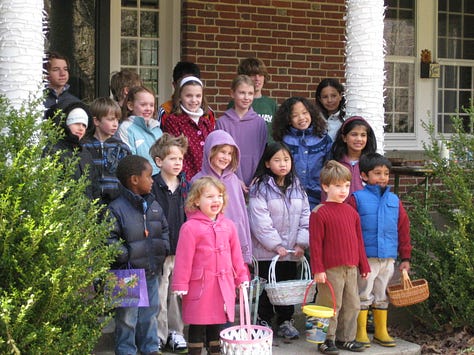
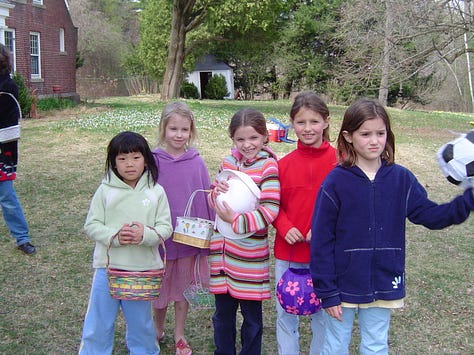
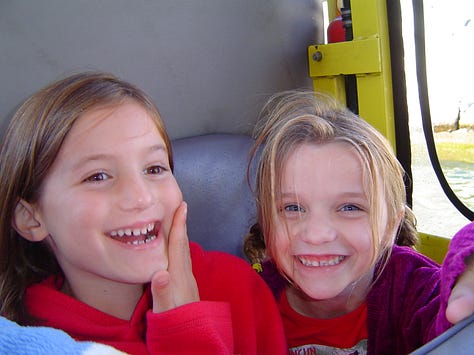

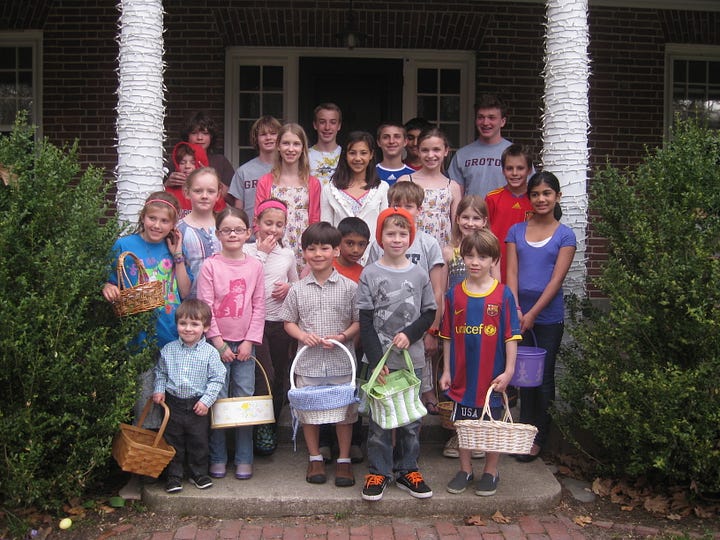
High School
As soon as I could, I enrolled at the school. I was thirteen, part of the small eighth-grade program, and our fac-brat posse had already begun to disperse. Come late August, the campus filled with peers from across the country and around the world, and their presence felt like a chance to reinvent myself. There were academic wunderkinds, potential first kiss candidates, city kids who’d never lived rurally, sporty types in enviable Lululemon athleisure. Though I was technically a day student, I felt like a boarder, because I, too, lived at school.
My identity inevitably shifted from faculty kid to student, and I became preoccupied with my new friendships and flirtationships, and with excelling in school and extracurriculars. There were grades to make, metrics to meet, and a social life to maintain, and I didn’t take any of those aspirations lightly. Sometimes I’d forget to eat, lost in a textbook or swallowed by some all-consuming social drama, only to resurface with a vicious hunger. Everything I did felt consequential, and ingesting enough calories was the least of my concerns. And sometimes I’d consciously skip meals, choosing hunger pangs over the embarrassment of going to the dining hall alone without a friend to sit with, which makes me sad to think of now. For these reasons and more, I swung between not hungry and ravenous throughout high school — not unlike the way I swung between euphoric and devastated. There was no mild middle ground; I was a true teenager, supercharged and shattered.
Looking back, I see how much I believed the world revolved around me. Of course the food was there for me to eat, just as the smart kids were there to make me feel stupid and the rich kids there to make me feel poor. I ate (or didn’t eat) as I pleased, and rarely (if ever) thought about the extraordinary privilege of living next door to a dining hall where hard-working and kind employees had fed me since I was six.
In the morning, I often arrived at the dining hall around when it opened to sneak in another hour or two of studying before 8 a.m. chapel. And in the evening, after a cross-country race or lacrosse game, I rushed through dinner, guzzling a glass of cold chocolate milk because someone told me it was “good for recovery.” Afterwards, I’d take a hot shower and return to my studies for a long night of homework. All extremes, all the time. My appetite caught up to me on Sundays — the one day a week without classes, when I spent the longest stretch at the dining hall. When our morning chapel service finished, my fellow choir singers and I would change out of our robes in the haunted basement, then trudge to the dining hall together. On Sundays, the soft-serve machine and waffle makers were set out for us, and we’d consume monstrous, life-giving breakfasts combining the two, all piled around a table. Then back to work we went.


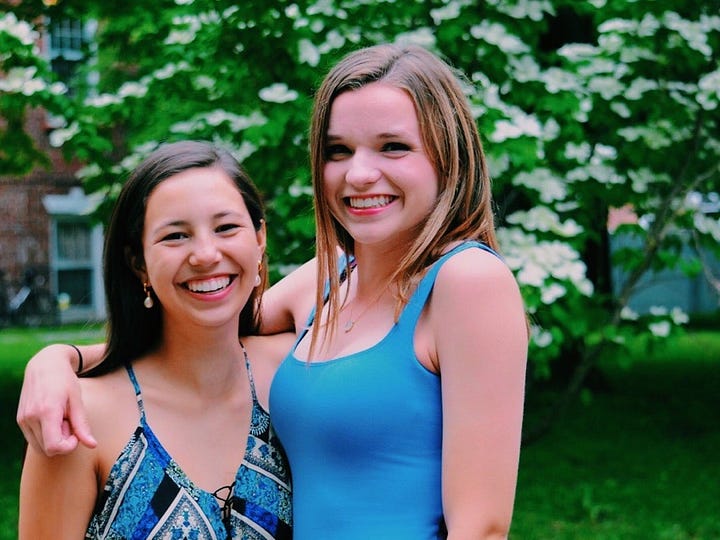


Today
My dad is currently wrapping up his twentieth and final year at Groton School. Afterwards, he plans to take a moment to rest (read: cycle mountains and chop wood in Vermont) before embarking on his next, not-yet-determined chapter. In truth, I didn’t feel nostalgic about my parents leaving Groton until just last week — three days before going home for the last time as a fac-brat — when it hit me all at once.
In college, I made a conscious effort to distance myself from my boarding school background. I didn’t want to be mistaken for the wrong kind of prep school kid — the entitled, out-of-touch stereotype. I worried that saying I grew up on a boarding school campus would make me sound spoiled, or mark me as belonging to a particular socioeconomic subculture. Maybe I wasn’t wrong; maybe some people would’ve seen me that way. But in trying to disown that part of myself, I lost sight of something more important.
The truth is: at that point, nearly all of my formative experiences had happened on the grounds of a boarding school. My brothers and I are products of that environment — shaped not just by the institution itself, but by the people who made it what it was. The teachers, the students, the dining hall chefs, the buildings and grounds crew. This was my community. And that community still stands behind me — including Ed Wetterwald, Executive Chef at Groton, who follows my work and reads The Dish.
Back in the dining hall for the last time for a while, I poured myself a glass of chocolate milk, willingly served myself vegetables (which were delicious, by the way), and said thank you to Ed.

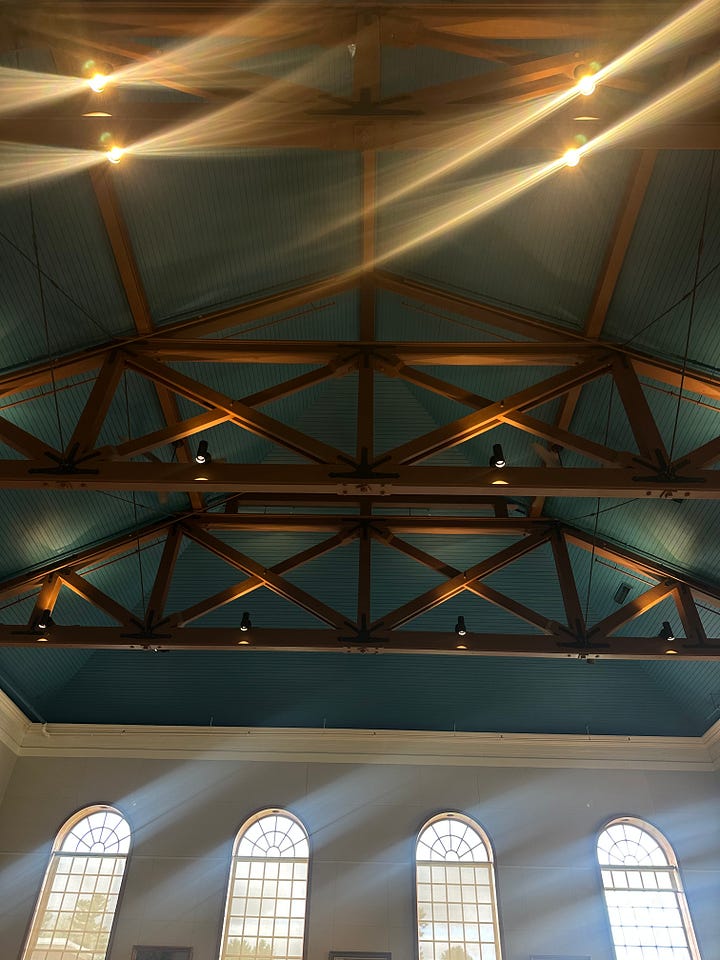
Thank you for reading this lengthy, personal post! I’ll be back with a more digestible Sweet Somethings soon, I promise.
x Phoebe




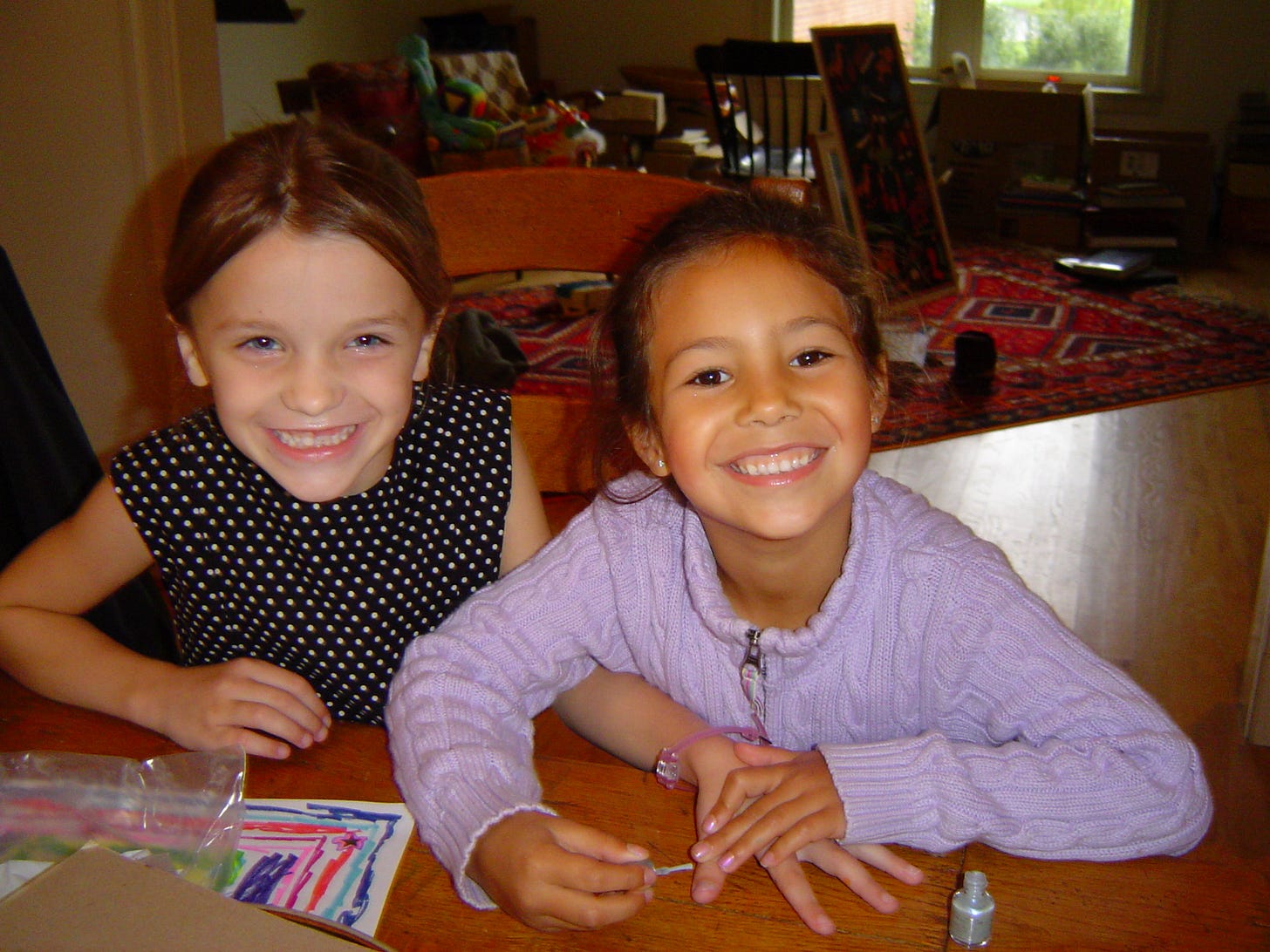
Loved reading this....wish I could've had the time to sit in the dining hall and talk with you over a cold glass of chocolate milk
love love loved this! (i can taste the chocolate milk now)